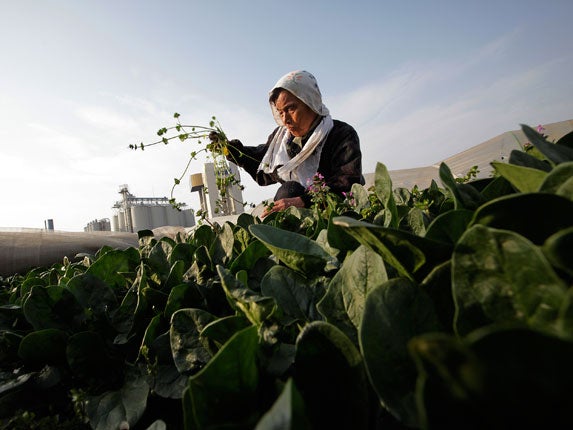Food contamination and fresh leaks renew fears over radiation levels

Fresh concerns were raised yesterday about radiation leaking out of Japan's damaged nuclear reactors, after the World Health Organisation said food contamination was more serious than previously thought and smoke or steam was seen coming out of two of the facilities.
On the day that Japan's Prime Minister said "slow but steady progress was being made" at the Fukushima plant and workers succeeded in attaching power cables to all six reactors to restart the pumping of cooling water, the warning by the WHO was seen as another backward step. The plumes of smoke coming from units No 2 and No 3 also forced the evacuation of engineers and a halt to work.
"Quite clearly it's a serious situation," Peter Cordingley, a WHO spokesman, told reporters. "It's a lot more serious than anybody thought in the early days when we thought that this kind of problem can be limited to 20 to 30km."
Though the WHO said there was no evidence that radiation had been found in food being exported, China, South Korea and India said they were monitoring imports for such signs.
"Japan's nuclear leak has sounded an alarm bell for the international community about the safety of nuclear energy," Yang Jiechi, the Chinese Foreign Minister, said.
The potential contamination of food is one of the major worries for the Japanese authorities, desperate to avoid a public panic. The government has so far insisted that the level of radiation discovered in certain foods – spinach and milk, for instance – is not at a level that is harmful to health. But it has urged residents in some of the areas surrounding the reactors to stop drinking tap water and has banned the sale of raw milk from Fukushima and rapeseed and spinach.
In Tokyo, which has experienced some hoarding of food by residents, there have not yet been any major reports of food contamination. "Please do not overreact, and act calmly," Yukio Edano, a government spokesman said. "Even if you eat contaminated vegetables several times, it will not harm your health at all."
In another setback yesterday, workers had to be evacuated from the reactor after smoke or steam was seen pouring from two of the units. There was confusion as to what was responsible for the release. Plant officials overseeing the effort to cool reactors said they were unsure what caused it. The smoke later receded and Japan's nuclear safety agency said there had been no significant change in radiation levels at the site.
Earlier in the day it was announced that engineers had been able to reconnect power supplies to the units, something that should allow the pumping of cooling water. The announcement suggested that the authorities had created some sort of momentum as they battled to deal with a crisis already rated worse that the incident at Three Mile Island.
The head of the UN atomic agency said yesterday that while Japan's nuclear situation was still very serious, he had no doubt the country will "effectively overcome" the crisis.
However, Yukiya Amano, director general of the International Atomic Energy Agency, also said that the disaster had exposed serious weaknesses in the ways the international community responds to such emergencies.
Mr Amano praised his agency's on-going response to the recent crisis at the Fukushima plant, but highlighted that current conventions for emergency responses to such situations are out dated and need to be "reassessed".
Speaking at a closed-door IAEA board meeting of 35 member nations to discuss the findings of his trip to the plant, Mr Amano told delegates that a "thorough review of the accident will be necessary" to strengthen current nuclear safety standards. Afterwards, he told reporters that the agency is "doing exactly what we are asked according to treaties and conventions, however all of these frameworks were established in the 1980s after Chernobyl".
Police now estimate that more than 18,000 people died in the earthquake and tsunami. Thousands remain missing. The World Bank said that rebuilding the stretch of north-east coastline devastated by the disaster could cost £144bn and take five years.
Join our commenting forum
Join thought-provoking conversations, follow other Independent readers and see their replies
Comments
Bookmark popover
Removed from bookmarks